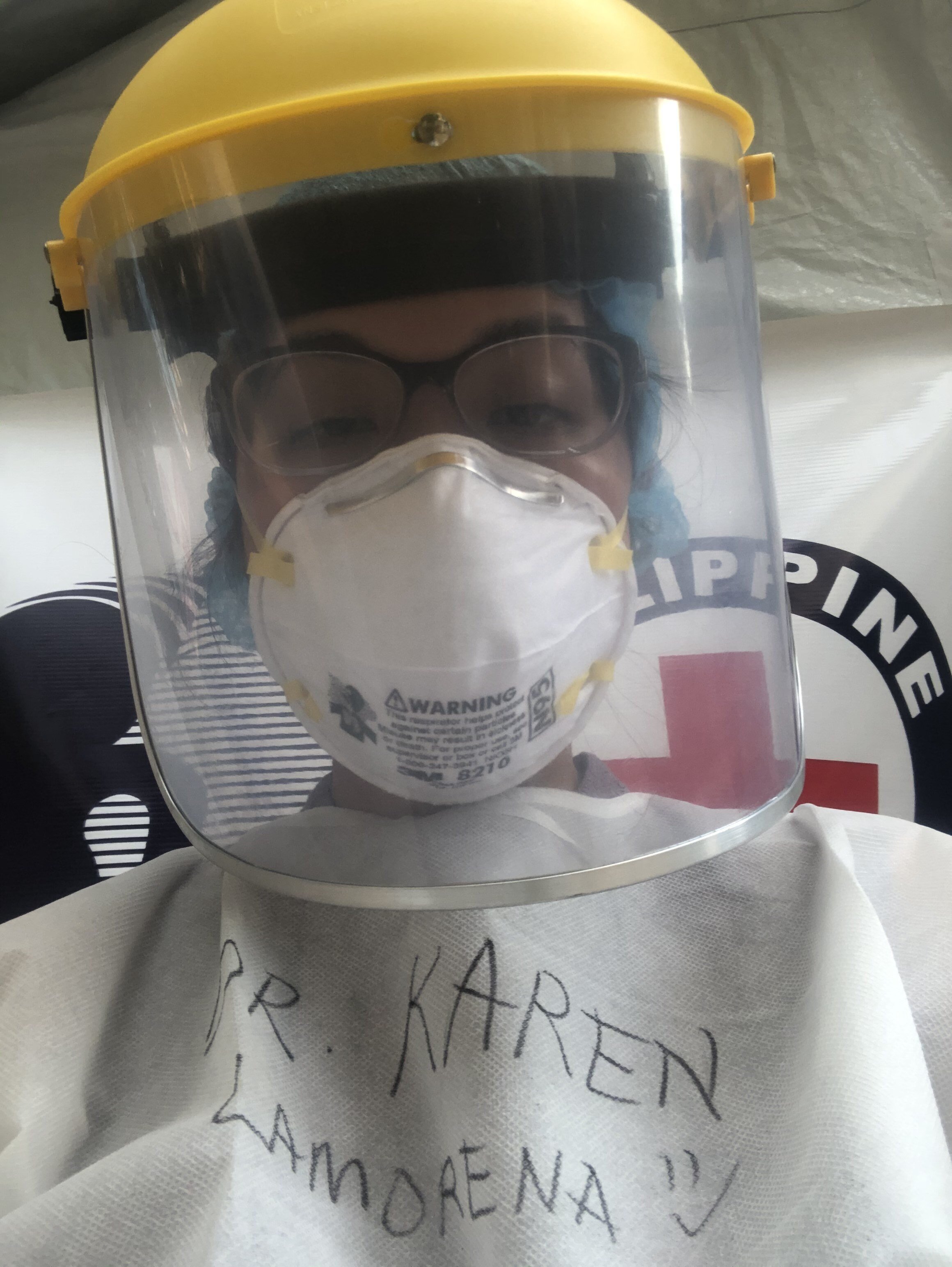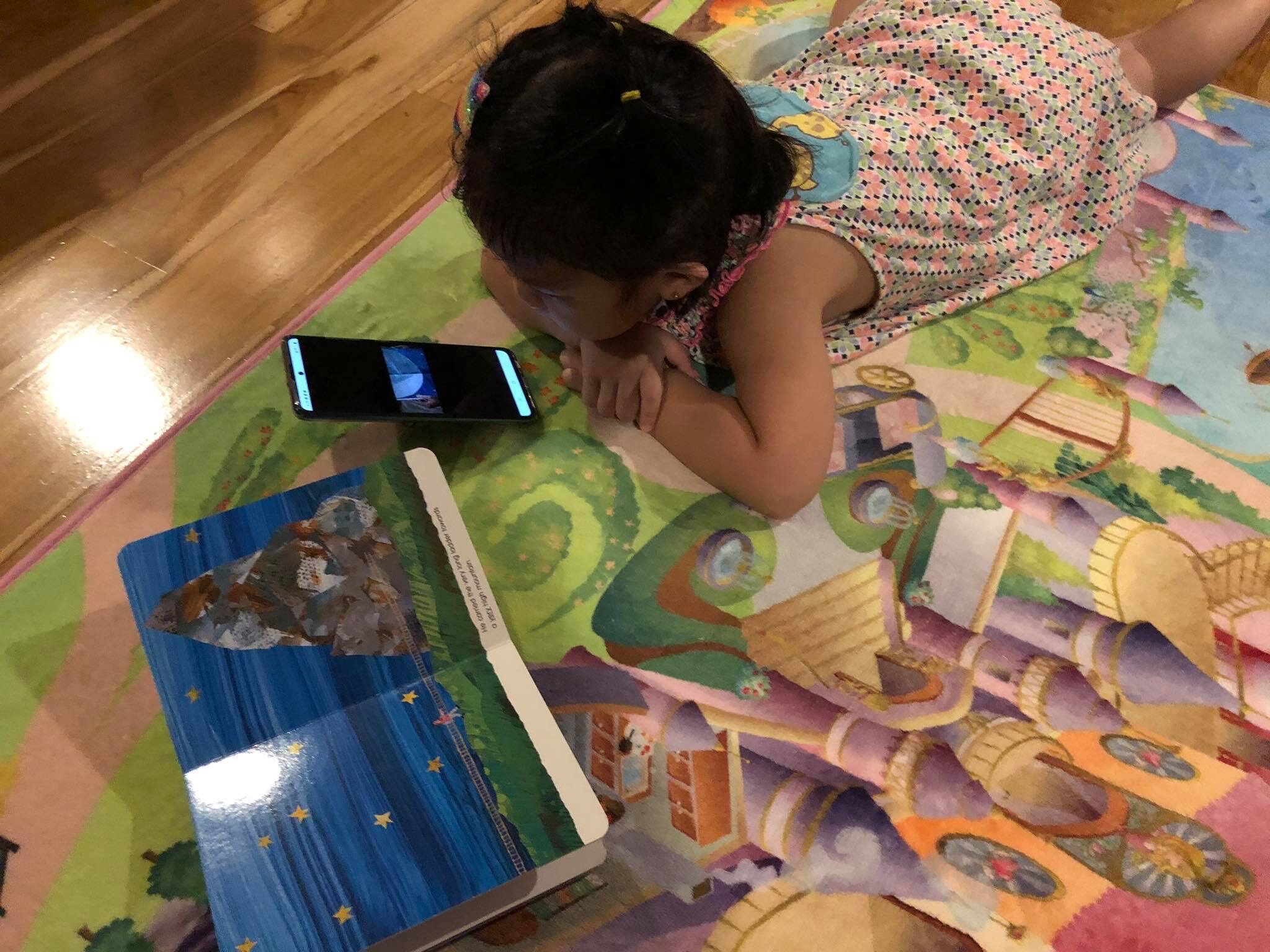“Being a frontliner has emphasised to me the oath I took when I became a doctor. No matter how hard the challenges, we still have to do our part in helping others,” so shares Dr. Karen Lamorena-Realo, MD., who is in her last year as an Adult Nephrology fellow at the National Kidney & Transplant Institute (NKTI).
In her PPE.
A “frontliner” in the fight against Coronavirus, or COVID-19, Doc Karen made the decision to send her daughter to her family’s province to go and live with her parents and grandparents while she stayed in Manila with her husband to fulfill her duty as a medical professional. The challenge is a double whammy, being away from her just turned two-year-old and going to work everyday with the fear of acquiring the illness and potentially bringing it home.
Doc Karen’s main task with the COVID-19 cases of her hospital is to care for COVID-19 cases that also require dialysis or kidney transplants. She also works in the emergency room triage area, and also does hospital rounds to check on the patients.
Of the hospitals in the Philippines, NKTI is known for its specialty in kidneys and organ transplants. This presented a special challenge to the hospital since many of their patients already require specific or critical care. The hospital was forced to set up a tent outside of the emergency room area in order to attend to COVID-PUI and COVID-positive patients. This was done in order to protect the regular hospital patients by lessening their chances of getting COVID-19. In effect, the doctors, Lamorena-Realo included, had set up a “mini-hospital” complete with a hemodialysis center outside of their hospital itself.
Despite the difficulties, Doc Karen remains hopeful for the country’s healthcare system. She believes that the experience has exposed the flaws in the Philippine healthcare system, and she hopes that the response to the virus can be one of the stepping stones for improving the healthcare system after the pandemic. “Not only do patients need to be adequately cared for,” she says, “the healthcare workers need to be adequately protected while providing this care.”
“A good first step,” she continues, “for adequate patient care is properly isolating the patient in a well equipped room. We should always think of supporting the patient not only medically but emotionally as well since isolation can take its toll on them.
As for healthcare workers, protocols should be put in place for adequate protection. Full PPEs must be readily available for everyone on the team since the mindset should be that every patient who comes in may be a COVID-like patient.
Since these should be put to practice now, after this pandemic, hospitals should look back and assess what worked and what did not. Then guidelines on how to handle another pandemic should be put in place.”
It is this hope and goal for Philippine healthcare that keeps her going, and the comfort she receives from her spouse. “I’ve been blessed with a supportive and funny husband,” Doc Karen says. “Who has been an anchor in this difficult situation… He also cooks healthy meals for me, encourages me to exercise, and during Sundays we attend online mass.”
Storytime with her daughter.
She also comforts herself with video calls with her daughter, noting that the situation has brought out the creative parent in her. Recently, she created a storytime video for her daughter so as to be able to read to her and spend time with her even if she is on duty. “[The experience] has changed me as a mother since I now think of ways to make her feel loved even from afar.”



So proud of you for your dedication as a mom and as a doctor, Karen! Praying for your protection and safety, and that you’ll be able to hug your little girl real soon!